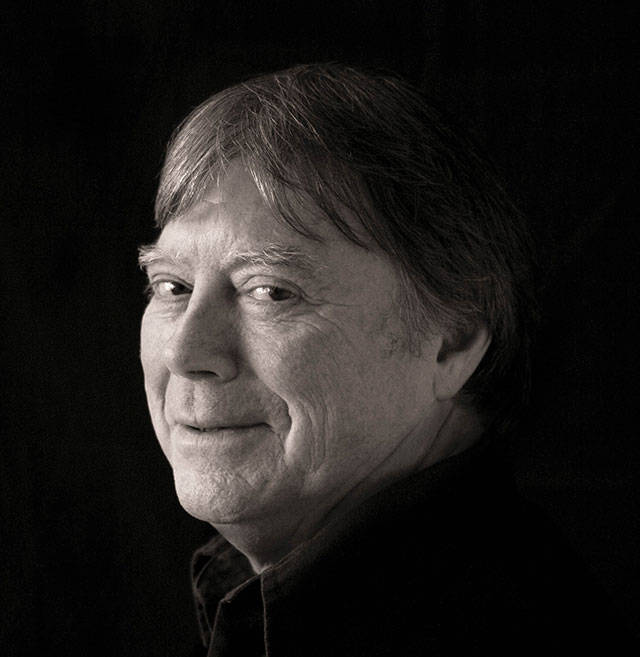By Michael Meade
Poets can be prophetic at times, and they are supposed to tell the truth at all times. William Butler Yeats did both when he wrote “The Second Coming” in the aftermath of the World War I.
Things fall apart; the center cannot hold;
Mere anarchy is loosed upon the world,
The blood dimmed tide is loosed, and everywhere
The ceremony of innocence is drowned.
What was true then may ring more true now. I think of those lines each time I hear another account of a mass shooting where weapons of war are loosed upon the streets of contemporary America. At each report of innocent children and defenseless people being cut down by the nihilistic rapid fire of hate, I feel the ceremony of innocence being drowned again. And the recent shootings in El Paso and Dayton came in such rapid succession that it felt as if the blood dimmed tide was loosed upon us all.
An old idea states, “It is the same to live in a tragic time as to be in a tragic place.” There is truth in that, as we are all wounded by the cold-hearted, cold-blooded killings that plague the entire country. The gun violence and mass shootings are an attack on humanity itself. They devalue all of our lives, leaving us in a devalued world where the sanctity of life itself has become endangered. Something must be done to stop these massacres. For, they will not just continue but will grow greater, both in terms of frequency and levels of human tragedy.
We all increasingly suffer the condition where “the center cannot hold.” The hardline polarization of political parties says that the attempts to dehumanize people of color say that; the growing number of people feeling fear and anxiety on a daily basis says that. The center cannot hold in the face of all the uncertainties about the future coming from the threats of climate change, as well as the sense of worldwide cultural upheaval.
Under the weight of collective pressures and growing anxieties, those who are more mentally or emotionally unstable can feel pushed closer to the edge. From here, all it takes is some reckless rhetoric to push them right over. When it comes to gun violence and mass shootings, it would appear that instability is growing more intense in young men, and especially in young white men.
Male violence can be found in most places in the world, but in America, it is armed to the teeth. Unfortunately, there are also powerful men who either deny or ignore how out of balance and increasingly out of control American culture has become.
We are in a battle not to “make America great again,” but to make all people human in the eyes of each other again. We are in a fight against the alienation and isolation that fear can generate and that hate can harden.
For many years, I’ve studied ways in which ancient cultures used practices like rites of passage and initiation practices both to awaken and to heal young people as they make the transition from childhood into adulthood. Traditional cultures often realized that artful methods had to be developed to contain and shape the volatile emotions and intense energies that characterize youth.
It seems to me that there lies a deep root of the problem of violence in modern societies. Just when young people are at their most volatile, modern culture tends to turn away, rather than engage youth at a meaningful psychological level. Instead of consciously engaging the inner heat of youth and aiming it at something life-enhancing, contemporary cultures tend to literally leave youth to their own devices. The result is that many young people feel isolated and increasingly alienated, not just from the culture, but from any inner sense of being meaningful or valuable in this world. Either the forceful energies of youth become tempered and aimed at nobility and genuine ideals, or those same energies will manifest as extreme self-involvement, addictive tendencies and violent behaviors.
The ancient Irish had a saying: “You don’t give a man a weapon until you’ve taught him how to dance.” In other words, a different kind of learning is required before someone can be truly trusted with social power and potent things like weapons. If a man does not know the wounds of his own soul, he can deny not just his own pain, but also be unmoved by the suffering of other people. In order to properly bear arms, a person must first become disarmed, as in becoming vulnerable and connected to something meaningful and supportive of life.
An essential test of any culture involves whether it can find an imagination greater than violence, brutality and greed. When the ceremony of innocence becomes drowned again, we have to deny the part of ourselves that wants to retreat from the agony of life. We have to struggle against the forces that would dehumanize any of us and find ways back to the center again, where the humanity and the nobility of everyone can be recognized and nourished and blessed.
— Michael Meade is a renowned author, mythologist, storyteller and the founder of Mosaic Multicultural Foundation. Information about his works, podcast and Mosaic can be found at mosaicvoices.org.



